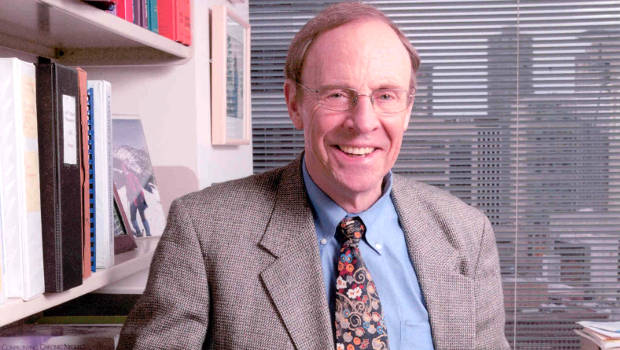How many lives has Dr. Tommy Thompson saved?

Dr. Paul Sherman reflects on his friend and mentor — a preventive-care pioneer who will be honored Saturday, Oct. 15 at the Group Health Foundation’s “Gift of Health” Gala
I’m particularly excited about this year’s Group Health Foundation “Gift of Health” Gala because we’ll be honoring a dear colleague, Dr. Robert S. “Tommy” Thompson — retired Group Health pediatrician, researcher, and founder of its Department of Preventive Care.
Many folks remember Tommy for leading Group Health’s now-famous bike-helmet research, which catalyzed helmet use worldwide, preventing untold numbers of head injuries and undoubtedly saving tens of thousands of lives.
But Tommy did a lot more than this. He started Group Health’s vaccine registry in the early 1990s, which boosted immunization rates to reduce kids’ risk of life-threatening diseases. It became a model for other large health care organizations around the country. He was instrumental in establishing Group Health’s Breast Cancer Screening Program in the 1980s, the first of its kind nationally. Plus, he helped establish Group Health Research Institute, ensuring our innovations are well studied and disseminated to benefit people worldwide.
To me, personally, Tommy has been a mentor and friend. I met him in 1992 when we were both practicing pediatricians at Group Health’s Northgate Medical Center. A full generation ahead of me, he was known as the go-to guy for consults on difficult cases and diagnostic challenges. An organized thinker and well-read, Tommy was always very clear and very supportive. All the doctors sought him out for advice.
My best memory of Tommy was working with him on the design of preventive care for children. In residency, I was taught how to be responsible for the kids who showed up to see us. But Tommy taught me how to be responsible as well for those who don’t make it to the clinic.
I learned that by using tools like registries, we could systematically track the experience of all the children in our care. We could reach out to families and make sure no child falls through the cracks. In fact, Tommy’s research showed that two years after Group Health implemented its first automated immunization tracking and reminder system in 1993, the percentage of two-year-olds receiving adequate immunizations jumped from 63 percent to 90 percent. That translates into thousands of children no longer at risk for potentially devastating illnesses like measles, polio, or diphtheria.
Thanks to Tommy’s pioneering leadership, this systematic, pro-active approach to caring for whole populations now infuses most everything we do at Group Health, making it a national model in population-based preventive care. We use it in cancer screening and caring for people with chronic conditions like diabetes and heart disease. We systematically screen patients for problems like tobacco addiction, alcohol-use disorder, depression, and intimate-partner abuse — and we help them get the care they need. And of course, we continue to reach out to Group Health members of all ages, encouraging them to get immunizations to stay healthy. The foundation for all of this can be traced back to Tommy and his early collaborators.
How many lives has this approach saved? That’s the funny thing about preventive care; it’s impossible to measure all the illness that we’ve side-stepped, all the suffering that never happened. But as I gather with my friends and colleagues at the “Gift of Health” gala Saturday night, I’ll take a look around the ballroom and try to imagine Tommy’s impact. How nice to be surrounded by so many good people — all alive and well — and all celebrating the legacy of Dr. Robert S. “Tommy” Thompson.
Paul Sherman, MD, MHA
Executive Medical Director
Group Practice Division
Group Health Permanente
This article originally appeared in Group Health Foundation News.
Learn more about Group Health Research Institute.


